Slideshow: Common Baby Feeding Problems


Baby Avoids New Foods
It's just a fact of life: "Children come equipped to reject new foods," says Elizabeth Ward, MS, RD, author of The Complete Idiot's Guide to Feeding Your Baby and Toddler. To help your baby accept new foods, start with tiny portions. Also try to make new food look similar to a familiar favorite. If they like pureed carrots, try pureed sweet potato.

Messy Eaters: 'Feeding the Floor'
Cereal on the floor and peas in baby's hair? Congratulations, your little one is showing signs of independence. At about 9 months, many babies start wanting to control feeding time and where they put their food. While it may be hard to sit back and watch the mess grow, take heart, this is an important step for your baby's learning, growth, and self-reliance.
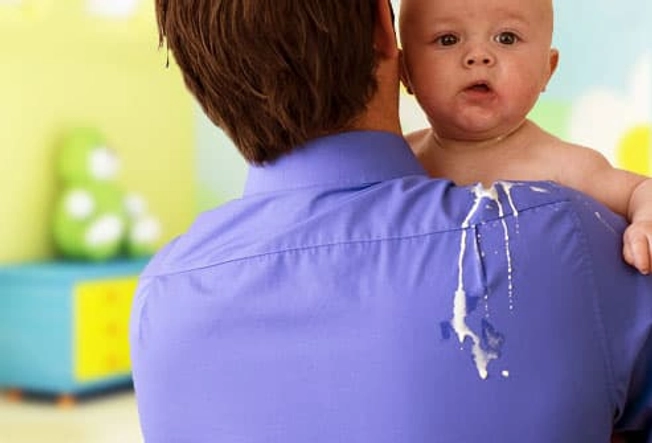
Spitting Up, Vomiting, Baby Reflux
It's normal for babies to spit up a little, especially newborns. Babies' digestive systems are still developing. Babies can also get reflux, which is when food in the stomach backs up into the esophagus. To help manage reflux, try feeding your baby more slowly or feed them less at each sitting, loosening their diaper, and keeping them upright after they eat. Reflux almost always resolves without treatment by 12-14 months of age.
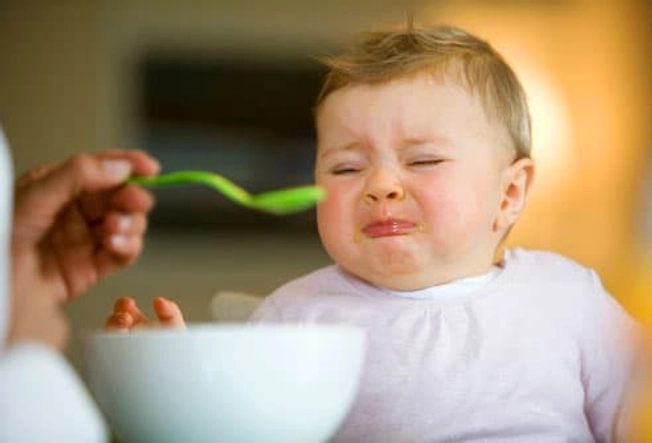
Refusing Food – Baby Doesn't Want!
You offer your little one a bit of food and they turn their head, swat at the spoon, or clamp their mouth shut. Babies refuse to eat every now and then for lots of reasons: They're tired, sick, distracted, or just full. Don't force-feed your baby, but do talk to your child's doctor if you're worried.
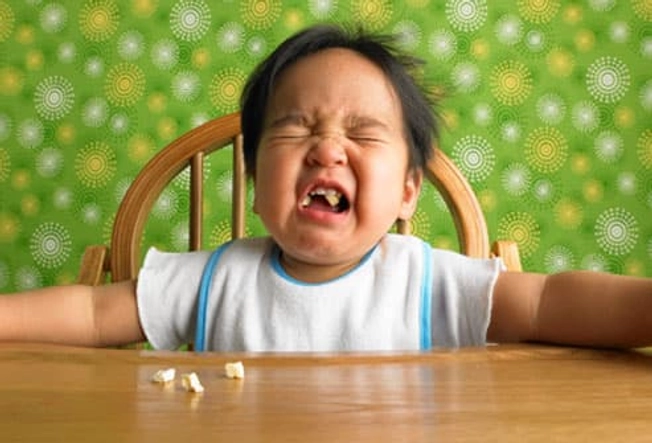
What's Up With Picky Eaters?
While picky eating may linger for weeks, even months, it rarely lasts. Your baby can become a picky eater for lots of reasons, says Ward. When babies aren’t feeling their best -- like when teething -- familiar foods provide comfort. Or maybe your baby just isn't ready to try a new food. Make sure you don't give the baby junk food just because that's all they want. Offer healthy foods, and a hungry baby will eventually eat them.

Food Allergies and Intolerances
Up to 8% of children have food allergies. Symptoms such as rash, diarrhea, vomiting, or stomach pain can show up suddenly. Though kids can be allergic to any food, milk, nuts, eggs, soy, wheat, and shellfish are the most problem foods. Food intolerances are more common than allergies and may cause gas, bloating, and belly pain. If you suspect a food allergy, work with your child's doctor to find safe foods.

Colic and Baby's Appetite
As many as 2 out of 5 babies cope with colic -- crying for hours at a time. Colic can start when a baby is 3 weeks old and usually goes away by their 3rd month. While colic won't affect your baby’s appetite or ability to suck, a colicky baby may need time to calm down before they eat. And they may be inclined to spit up a little once they do. However, call their doctor about vomiting, diarrhea, fever, weight loss, or blood or mucus in their stool. These are not symptoms of colic.

Diarrhea and Constipation
Diarrhea can quickly lead to dangerous dehydration. Signs include dry mouth, decrease in urination or wet diapers, no tears with crying, weight loss, lethargy, or sunken eyes. All are worth a call to baby’s doctor.
Babies are rarely constipated. And it can be hard to tell if they are because how often babies have bowel movements can vary. For example, babies who only breastfeed may have a firm stool just once a day. Signs of constipation include hard stools that can be large and painful, and blood around the stool. Before trying home remedies, talk to your baby's doctor.
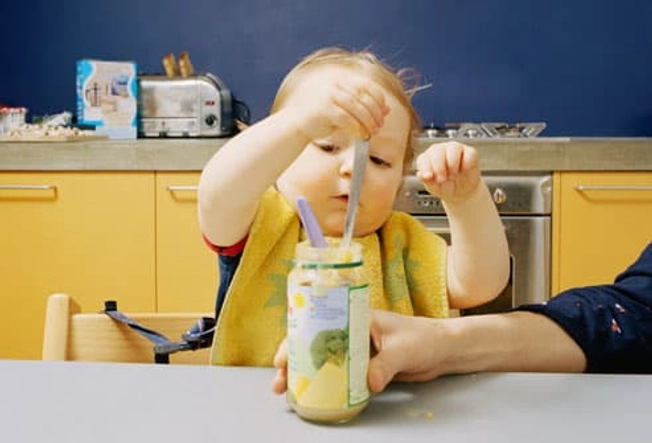
Jarred Baby Food and Stomach Distress
Is jarred baby food the cause of your baby's digestive issues? It could be if you feed them directly from the food jar and save the leftovers for another meal. Doing that can introduce bacteria from your baby's mouth into the food where it waits until the next time your baby eats it. When baby eats the leftover food it can lead to tummy trouble such as vomiting, diarrhea, and other symptoms.
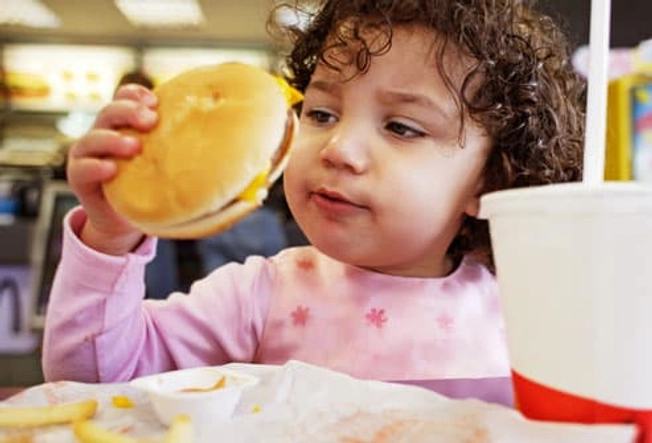
Older Babies and Junk Food
Sometimes mom and dad may be the source of baby's feeding problem. "There's a temptation to give older infants the same foods you're eating," says Ward. But that's never a good idea if what you're eating is junk. Start giving baby sweet, salty, or fatty foods now and it'll be hard to keep break your child's unhealthy eating habits when they are a toddler.

Foods to Avoid Giving Baby
A baby's undeveloped gastrointestinal system can't deal with some foods that an adult's body can. Honey, for example, may lead to infant botulism, which can be fatal. Always steer clear of chunky foods that pose choking hazards such as popcorn, hot dogs, raw fruits and veggies, raisins, and meat or cheese chunks.

When to Get a Pediatrician's Advice
Because so many things could be causing your baby's feeding problems, it's a good idea to talk to your doctor if you're worried. Always call your child's pediatrician right away if your baby is losing weight; if they gag or vomit when they have certain foods; if you suspect diarrhea, dehydration, or constipation; or if you think they have reflux. You shouldn't feel shy about talking with your child's doctor if you have any questions or concerns.
IMAGES PROVIDED BY:
1) Pixtal Images / Photolibrary
2) Christoph Ermel / iStock
3) Julian Winslow / Ableimages
4) Harald Eisenberger / LOOK
5) Ryan McVay / Stone
6) Kevin RL Hanson / DK Stock
7) Terry Vine / Blend Images
8) SimplyMui Photography / Getty
9) Betsy Van Der Meer / Taxi
10) Peter Cade / Iconica
11) Jason Edwards / National Geographic
12) Purestock / Getty
REFERENCES:
Elizabeth Ward, MS, RD, registered dietitian; author, The Complete Idiot's Guide to Feeding Your Baby and Toddler.
Piette, L. Just Two More Bites: Helping Picky Eaters Say Yes to Food, Three Rivers Press, 2006.
American Academy of Pediatrics. Caring for Your Baby and Young Child: Birth to Age 5, Bantam Books, 2009.
Children's Hospital Boston: "Newborn Gastrointestinal Problems."
National Digestive Diseases Information Clearinghouse, National Institutes of Health: "Gastroesophageal Reflux in Infants."
National Society for Pediatric Gastroenterology, Hepatology, and Nutrition: “Pediatric Gastroesophageal Reflux Clinical Practice Guidelines.”
Mackonochie, A. The Practical Encyclopedia of Pregnancy, Babycare and Nutrition for Babies and Toddlers, Lorenz Books, 2006.
National Institutes of Health: "Food Allergy."
American Academy of Family Physicians: "Feeding Problems in Infants and Children."
KidsHealth.org: "Your Colicky Baby."
ADD American Academy of Pediatrics, healthychildren.org: "Diarrhea" and "Constipation"
Children's Hospital Boston: "Newborn Gastrointestinal Problems."
American Dietetic Association: "Don't Feed Baby from the Jar," "Introducing Solid Foods."
Dr. Greene.com: "Honey and Infant Botulism."
The New York Times: "Labels Urged for Foods That Can Choke."
Children's Physician Network: "Picky Eaters."
